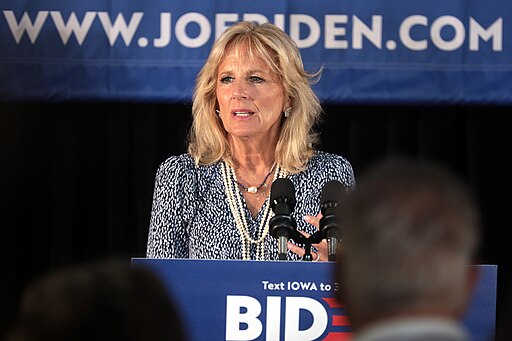A former aide to Jill Biden invoked the Fifth Amendment on Wednesday during a closed-door session with the House Oversight Committee, marking the second time a key figure has refused to answer questions in the ongoing investigation into former President Joe Biden’s mental fitness and the alleged use of an autopen for official documents.
Anthony Bernal, who served as Jill Biden’s chief of staff, declined to respond to the committee’s inquiries, citing his constitutional right against self-incrimination. He was accompanied by attorney Jonathan Su, a former deputy White House counsel, who later issued a statement explaining that invoking the Fifth should not be interpreted as an admission of guilt.
Oversight Committee Chair Rep. James Comer expressed frustration after the brief session, suggesting the refusal raised concerns about transparency and decision-making in the former administration. “The American people are concerned that unelected individuals may have been making presidential decisions,” he said.
Bernal’s deposition is part of a broader investigation by House Republicans, who have requested testimony from several former senior Biden aides. These include former White House chiefs of staff, senior advisers, and communications staff. Just one day before Bernal’s appearance, the committee issued a subpoena for Annie Tomasini, a former deputy chief of staff, to testify later this month.
In a recent interview, Biden dismissed the probe as unfounded, asserting that he personally made the decisions in question—particularly those related to clemency actions. “I consciously made all those decisions,” he said.
Democrats have criticized the investigation as politically motivated. Rep. Jasmine Crockett, who was present at the deposition, dismissed it as a partisan effort lacking substance. “They still look like losers,” she said of her Republican colleagues.
But Republicans maintain that the investigation raises legitimate questions about Biden’s capacity during his time in office. Rep. Byron Donalds argued that the refusal to answer basic questions suggests deeper concerns. “If you can’t say whether the president was making decisions himself, that tells us a lot,” he said. He added that additional subpoenas may be necessary, including for top officials and even family members.
Comer confirmed that the committee plans to continue pressing forward. “We’ve started with the lower-level staffers—the ones who likely handled the autopen,” he said. “Now we’re moving up the chain to those who may have given the orders.”
He also hinted that future testimony could involve members of Biden’s family, depending on where the investigation leads. “We’ll see where this goes,” Comer said. “But the likelihood of calling in family members is very real.”


